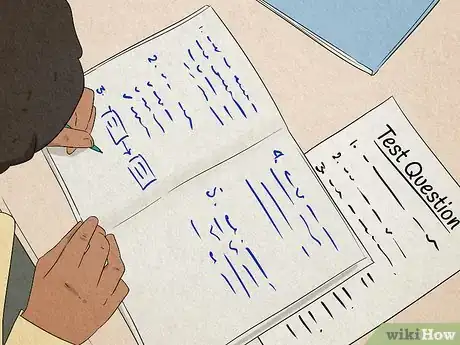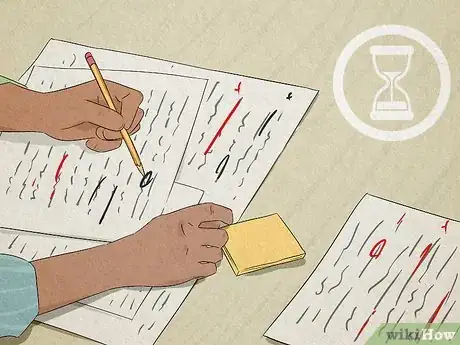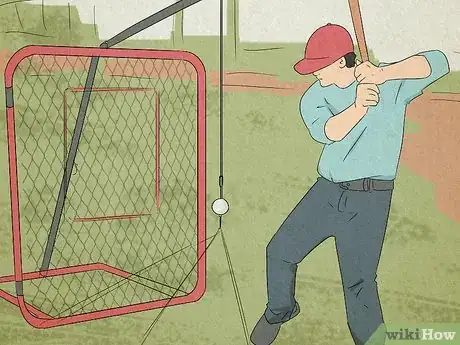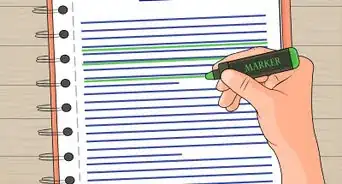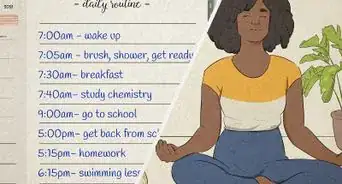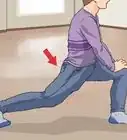This article was co-authored by Ronitte Libedinsky, MS and by wikiHow staff writer, Hunter Rising. Ronitte Libedinsky is an Academic Tutor and the Founder of Brighter Minds SF, a San Francisco, California based company that provides one-on-one and small group tutoring. Specializing in tutoring mathematics (pre-algebra, algebra I/II, geometry, pre-calculus, calculus) and science (chemistry, biology), Ronitte has over 10 years of experience tutoring to middle school, high school, and college students. She also tutors in SSAT, Terra Nova, HSPT, SAT, and ACT test prep. Ronitte holds a BS in Chemistry from the University of California, Berkeley, and an MS in Chemistry from Tel Aviv University.
There are 13 references cited in this article, which can be found at the bottom of the page.
wikiHow marks an article as reader-approved once it receives enough positive feedback. This article received 39 testimonials and 88% of readers who voted found it helpful, earning it our reader-approved status.
This article has been viewed 708,374 times.
Mastering a new concept takes time and dedication, but don’t you wish there was an easier way to get the hang of it? While cramming the subject doesn’t work in the long term, following good and effective learning practices helps you pick it up a little quicker. We’ll start with strategies for studying and reviewing concepts and move on to some lifestyle changes you can make so you remember things better!
Steps
Expert Q&A
Did you know you can get expert answers for this article?
Unlock expert answers by supporting wikiHow
-
QuestionWhat if I'm having trouble learning a difficult subject?
 Ronitte Libedinsky, MSRonitte Libedinsky is an Academic Tutor and the Founder of Brighter Minds SF, a San Francisco, California based company that provides one-on-one and small group tutoring. Specializing in tutoring mathematics (pre-algebra, algebra I/II, geometry, pre-calculus, calculus) and science (chemistry, biology), Ronitte has over 10 years of experience tutoring to middle school, high school, and college students. She also tutors in SSAT, Terra Nova, HSPT, SAT, and ACT test prep. Ronitte holds a BS in Chemistry from the University of California, Berkeley, and an MS in Chemistry from Tel Aviv University.
Ronitte Libedinsky, MSRonitte Libedinsky is an Academic Tutor and the Founder of Brighter Minds SF, a San Francisco, California based company that provides one-on-one and small group tutoring. Specializing in tutoring mathematics (pre-algebra, algebra I/II, geometry, pre-calculus, calculus) and science (chemistry, biology), Ronitte has over 10 years of experience tutoring to middle school, high school, and college students. She also tutors in SSAT, Terra Nova, HSPT, SAT, and ACT test prep. Ronitte holds a BS in Chemistry from the University of California, Berkeley, and an MS in Chemistry from Tel Aviv University.
Academic Tutor Try to remember that learning is a process, and no one is born understanding difficult subjects, like math. It's okay if you're not fast at it. You can take the time to learn at your own pace. Try to focus on small goals and the progress you've made so far instead of getting overwhelmed because you don't know everything yet.
Try to remember that learning is a process, and no one is born understanding difficult subjects, like math. It's okay if you're not fast at it. You can take the time to learn at your own pace. Try to focus on small goals and the progress you've made so far instead of getting overwhelmed because you don't know everything yet. -
QuestionHow can I study without being distracted?
 Community AnswerPut your phone away, study in a quiet place away from other people and challenge yourself to stay focused on your studies for just a half hour at a time. Take a five minute break after a half hour to recharge, then get back to studying.
Community AnswerPut your phone away, study in a quiet place away from other people and challenge yourself to stay focused on your studies for just a half hour at a time. Take a five minute break after a half hour to recharge, then get back to studying. -
QuestionI understand everything in class, but then I forget everything when I get home. How can I stop this?
 Community AnswerTake good notes in class. Then go over your notes when you get home to refresh your memory.
Community AnswerTake good notes in class. Then go over your notes when you get home to refresh your memory.
Warnings
- Avoid cramming since you’re more likely to forget what you learned.[16]⧼thumbs_response⧽
References
- ↑ https://www.apa.org/ed/precollege/psn/2013/09/learning-secrets
- ↑ https://www.sciencedaily.com/releases/2017/12/171201090940.htm
- ↑ https://www.apa.org/ed/precollege/psn/2013/09/learning-secrets
- ↑ https://pubmed.ncbi.nlm.nih.gov/24845756/
- ↑ https://www.psychologytoday.com/us/blog/good-thinking/201404/how-learn-faster
- ↑ https://www.apa.org/ed/precollege/psn/2013/09/learning-secrets
- ↑ https://www.psychologytoday.com/us/blog/good-thinking/201404/how-learn-faster
- ↑ https://www.hopkinsmedicine.org/news/media/releases/want_to_learn_a_new_skill_faster_change_up_your_practice_sessions
- ↑ https://www.entrepreneur.com/article/323450
- ↑ https://www.apa.org/research/action/multitask
- ↑ https://www.cnbc.com/2020/05/24/elon-musks-former-brain-coach-3-tips-to-learn-anything-faster.html
- ↑ https://hbr.org/2016/03/learning-to-learn
- ↑ https://www.sciencedaily.com/releases/2017/11/171122103555.htm
- ↑ https://www.sciencedaily.com/releases/2016/08/160822083446.htm
- ↑ https://www.mayoclinic.org/healthy-lifestyle/adult-health/in-depth/sleep/art-20048379M
- ↑ https://www.apa.org/ed/precollege/psn/2013/09/learning-secrets
About This Article
To learn faster, try making a mind map of the information you're studying by laying your flashcards, pictures, and notes out on the floor and connecting similar concepts and themes together with string. Then, study the information that way so you can easily picture your map in the future when you need to recall the topic. You can also learn faster by reviewing things you learn as soon as possible after you learn them. For example, instead of waiting until 3 nights before a test to study, try reviewing the topic right after you learn it so it sticks in your mind. To learn how to figure out what your personal learning style is so you can learn more efficiently, keep reading!


